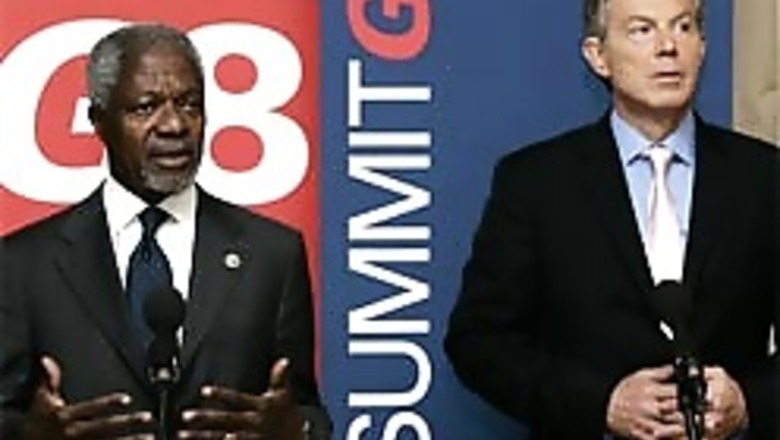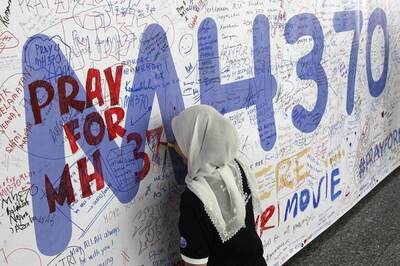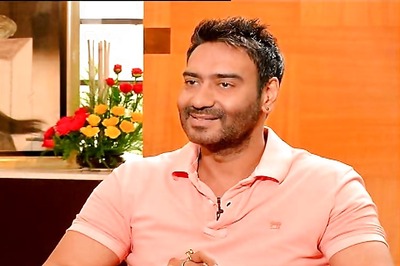
views
St Petersburg: British Prime Minister Tony Blair and UN Secretary-General Kofi Annan on Monday called for the deployment of international forces to stop the bombardment of Israel.
''The blunt reality is that this violence is not going to stop unless we create the conditions for the cessation of violence,'' Blair said after talks with Annan on the margins of the Group of Eight summit. ''The only way is if we have a deployment of international forces that can stop bombardment coming into Israel.''
Annan appealed to Israel to abide by international law, spare civilian lives and infrastructure.
He also said that the United Nations was considering evacuation plans for UN dependents from Lebanon, while Blair said Britain was looking at the possibility of creating an air bridge for its citizens.
Mark Regev, a spokesman for Israel's Foreign Ministry said that his country ''would welcome a more energetic and decisive international effort to bring about immediate and full implementation of Security Council resolutions 1559 and 1680, which call for the disarmament of Hezbollah.''
The comments by Blair and Annan came a day after world leaders forged a unified response at their G8 summit to the crisis in the Middle East, blaming Hezbollah and Hamas for the escalating violence and recognising Israel's right to defend itself - although they called on the Jewish state to show restraint.
''We cobbled together a very important statement,'' President Bush told reporters.
''I am most pleased that the leaders came together to say, look, we condemn violence. We honor innocent life,'' Bush said before heading into a meeting with Manmohan Singh. ''For the first time, we've really begun to address with clarity the root causes of the conflict and that is terrorist activity - namely Hezbollah, that's housed and encouraged by Syria.''
Bush also asserted that the militant Islamic group is financed by Iran. However, the G8 statement makes no mention of Syria or Iran. Russian President Vladimir Putin told reporters that Russia blocked the effort to name Syria.
''If we don't have enough grounds to blame somebody, we cannot ... put them in documents on such a serious state level just based on assertions,'' Putin said.
PAGE_BREAK
The leaders of major industrialized countries - the United States, Russia, Japan, Germany, Britain, France, Italy and Canada - convened Monday for their final sessions with seven leaders of the developing world.
The nations represented include a trio of emerging economic powerhouses - China, India and Brazil.
Those talks focused on more traditional summit fare, such as restarting stalled global trade talks and implementing a major debt relief program for the world's poorest nations that was announced at last year's summit.
Bush, who also met individually with Brazilian President Luiz Inacio da Silva, said that the two would discuss ''how we can move the Doha round forward,'' referring to the stalled trade talks being conducted by the 149 member nations of the World Trade Organisation.
In his meeting with Singh, Bush called a recent agreement to share nuclear technology with India ''a wonderful deal'' despite criticism that the agreement could undermine efforts to stop the spread of nuclear weapons.
The G-8 leaders had struggled to come up with a unified position on how to deal with the escalating warfare between Israel and Hezbollah guerrillas in Lebanon.
The leaders' statement said extremist groups cannot be allowed to plunge the Middle East into violence. It also urged Israel to exercise restraint in its military campaign.
The statement was a compromise between a US position strongly supporting Israel's right to defend itself against terrorist attacks and the views of other G-8 countries that Israel was engaging in excessive force.
The statement was carefully written so that different countries could claim it said different things. French President Jacques Chirac said it was evident from the statement that the G8 was calling for a cease-fire on both sides of the conflict.
But Nicholas Burns, undersecretary of state for political affairs, disagreed, saying, ''There was no push by any country for a cease-fire.''
The Bush administration insisted the call for halting Israeli airstrikes was conditioned on Hezbollah releasing captured Israeli soldiers and ending missile attacks on Israel, although the statement was not clear on these points.
The US view was supported by German Chancellor Angela Merkel. She said the soldiers must be returned unharmed and attacks on Israel must stop. ''Then, of course, also the Israeli military action must be ended,'' she said.


















Comments
0 comment